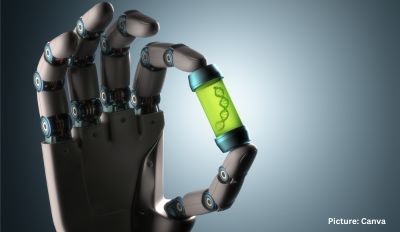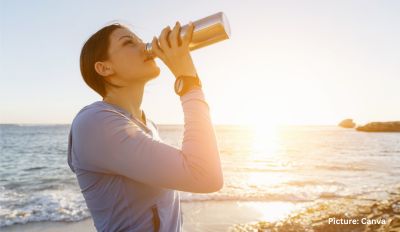Centers for Disease Control and Prevention vaccine advisers voted Sunday, Feb 28th to recommend the Johnson & Johnson Covid-19 vaccine for the US. It is the first of the three authorized Covid-19 vaccines that comes in a single dose.
In a unanimous 22-0, a panel of advisers to the Food and Drug Administration recommended that the COVID-19 vaccine developed by Johnson & Johnson be authorized for emergency use in adults during the pandemic.
The vote in favor of the vaccine, which requires only one shot for protection, was taken to answer this question: Do the benefits of the Johnson & Johnson vaccine outweigh its risks for use in people 18 years of age and older. The FDA typically follows the advice of its expert advisers. If the agency agrees, the Johnson & Johnson vaccine would be the third one cleared for use in the U.S.
A quick decision is expected given the state of the pandemic. The FDA authorized the Pfizer-BioNTech and Moderna COVID-19 vaccines one day after the same panel recommended them for clearance during separate meetings last December.
Two weeks ago, Dr. Mathai Mammen, Janssen’s global head of research and development, said if the vaccine is authorized for emergency use, “Our plan is to have supply immediately upon launch.” Even those who got moderate cases of Covid-19 in the trial tended to develop a milder course and fewer symptoms, said Dr. Mathai Mammen. From one month after the shot, all hospitalizations and deaths occurred in the placebo group.
The Johnson & Johnson vaccine was tested in an international study of about 40,000 people, half of whom got the vaccine and half of whom got a placebo. The study found the company’s vaccine to be 66% effective overall in preventing moderate to severe COVID-19 disease. For disease judged severe or critical, the effectiveness was 85%. The study was conducted in the U.S., South America and South Africa.
The main study included in the company’s application found that 28 days or more after immunization, the Johnson & Johnson vaccine prevented hospitalizations and death related to COVID-19. The overall efficacy figures are lower than Pfizer’s 95% for preventing COVID-19 disease and 94% for Moderna.
As the pandemic has drawn on, the coronavirus has mutated. Variants first seen in South Africa and Brazil, where the Johnson & Johnson vaccine was tested, mutated in ways that help them evade the immune response prompted by vaccines developed against the original form of the virus.
The vaccine was tested in more than 44,000 people in the US, South Africa and Latin America. Globally, it was 66.1% effective against moderate to severe/critical Covid-19 at least four weeks after vaccination, according to an FDA analysis. In the US, it is considered 72% effective, and offered 86% protection against severe forms of the disease.
Among more than 6,000 study participants who were queried within a week of vaccination, the most common side effects were pain at the site of injection (49%), headache (39%), fatigue (38%) and muscle pain (33%). These side effects were mostly mild or moderate.
The authorization of Johnson & Johnson’s vaccine would help expand the supply of COVID-19 shots. The company said 4 million doses of vaccine would be available in the U.S. as soon as the FDA gives its OK. A total of 20 million doses would be ready by the end of March, and Johnson & Johnson has committed to deliver 100 million doses under its contract with the federal government by the end of June.
The CDC’s Advisory Committee on Immunization Practices is a group of vaccine and public health experts that helps set guidelines for the CDC concerning the best practices with vaccinations. Members voted unanimously, with one recusal for a potential conflict of interest, to recommend the vaccine. They did not make any recommendations about specific groups who should receive the vaccine.
“I just want to state explicitly how very grateful I am that we now have three highly effective vaccines,” said ACIP member Dr. Matthew Daley of the Institute for Health Research with Kaiser Permanente Colorado.
The vaccine, made by Johnson & Johnson’s Janssen vaccine arm, can be kept at regular refrigerator temperatures, which experts said would make it much easier to distribute than vaccines made by Moderna and Pfizer/BioNTech.
“During a pandemic, the data show that the best utilization of resources is to employ all available vaccines with acceptable vaccine efficacy. This will save cost and lives,” the CDC’s Dr. Sara Oliver told the ACIP meeting. A single-dose vaccine has an advantage, particularly in settings where a second dose “would be challenging.” For example, it could be used to help protect the homeless, people in the justice system, and those with limited access to health care like people who are homebound or live in rural areas, Oliver said.
Overall, non-fatal serious adverse events were infrequent, according to the FDA’s analysis, and there were no reported cases of anaphylaxis following vaccination in the trial. There have been a small number of severe allergic reactions with the Moderna and Pfizer/BioNTech vaccines. For example, in the first week of the Pfizer vaccine rollout, there were only 29 cases out of 1.9 million doses administered, according to the CDC. More research is needed to now for sure, but the FDA analysis also hinted that the J&J vaccine may help prevent asymptomatic infections.
“These are three highly efficacious vaccines,” said Dr. Anthony Fauci, the director of the National Institute of Allergy and Infectious Diseases. “I can tell you I have been fully vaccinated with one that was available. It was the Moderna. If I were not vaccinated now and I had a choice of getting a J&J vaccine now or waiting for another vaccine, I would take whatever vaccine would be available to me as quickly as possible.”
“We want to get as many people vaccinated as quickly and expeditiously as possible,” Fauci said Sunday on CNN’s State of the Union. “So this is good news because we have another very good vaccine in the mix.”
The US has ordered 100 million doses and the company has been manufacturing it while it has been testing the vaccine. Typically, companies wait to make the vaccine after its been approved, but that changed during the pandemic. Johnson & Johnson says it can meet its 100 million dose commitment by June.











